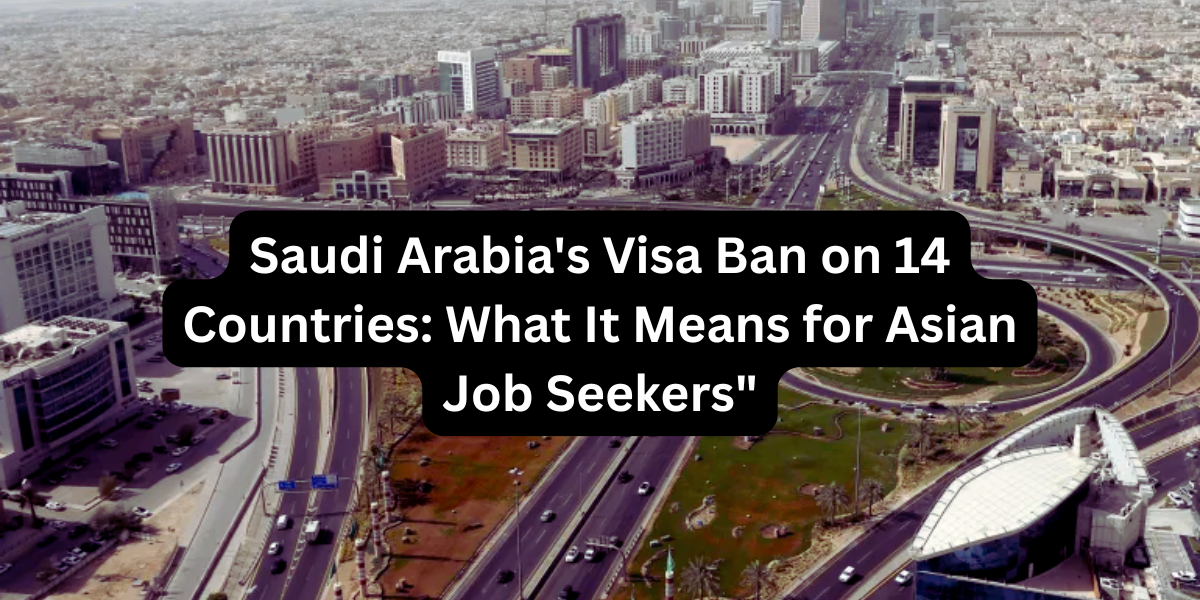In a significant policy shift, Saudi Arabia has announced the suspension of one-year multiple-entry visas for citizens of 14 countries, including India. Effective from February 1, 2025, this decision affects visas issued for tourism, business, and family visits. The affected countries are Algeria, Bangladesh, Egypt, Ethiopia, India, Indonesia, Iraq, Jordan, Morocco, Nigeria, Pakistan, Sudan, Tunisia, and Yemen.
Key Changes in Visa Policy:
- Single-Entry Visas Only: Travelers from the specified countries can now only apply for single-entry visas. Each visa is valid for 30 days, with a maximum stay of 30 days per visit.
- Exemptions: The new regulations do not affect Hajj, Umrah, diplomatic, and residency visas.
Reasons Behind the Policy Change:
Saudi officials have cited the misuse of multiple-entry visas as a primary reason for this change. Some travelers entered the country on long-term visas but remained illegally for work or performed Hajj without proper authorization.
The annual Hajj pilgrimage is strictly regulated by Saudi authorities, with specific quotas allocated to each country. Unauthorized pilgrims have contributed to overcrowding, leading to safety concerns. Notably, in 2024, over 1,200 pilgrims died due to extreme heat and overcrowding, with unregistered pilgrims significantly contributing to the crisis.
Implications for Travelers:
Travelers from the affected countries must now apply for single-entry visas well in advance of their planned visit. The Saudi Ministry of Foreign Affairs emphasizes the importance of adhering to the new regulations to avoid penalties or travel disruptions.
This policy change is part of Saudi Arabia’s broader efforts to manage the Hajj pilgrimage more effectively and ensure the safety and security of all participants. By tightening visa regulations, the Kingdom aims to prevent unauthorized individuals from performing Hajj without proper registration, thereby reducing overcrowding and associated risks.
While the government has described the suspension of multiple-entry visas as a temporary measure, no specific timeline has been provided for its review. Officials plan to assess the impact of the new policy before considering any further changes.
Travelers planning to visit Saudi Arabia from the affected countries should stay informed about the latest visa regulations and ensure compliance to facilitate a smooth travel experience. It is advisable to consult official Saudi government sources or authorized travel agencies for the most accurate and up-to-date information.
Potential Job Market Impacts:
-
Reduced Business Travel:
-
Professionals from the affected countries who frequently traveled to Saudi Arabia for business purposes will now face increased logistical challenges. The need to apply for a new visa for each trip could deter short-term assignments and business engagements, potentially impacting bilateral trade and collaboration.
-
-
Impact on Expatriate Workers:
-
Saudi Arabia hosts a significant number of expatriate workers from these Asian countries, particularly in sectors like construction, healthcare, and information technology. While the new visa restrictions primarily target visit visas, there could be indirect effects on employment opportunities, especially for those seeking short-term contracts or project-based work.
-
-
Economic Ramifications:
-
Remittances from workers in Saudi Arabia constitute a vital source of foreign income for countries like India, Pakistan, and Bangladesh. Any decline in employment opportunities or increased barriers to entry could adversely affect these remittance flows, impacting the broader economies of these nations.
-
READ MORE
